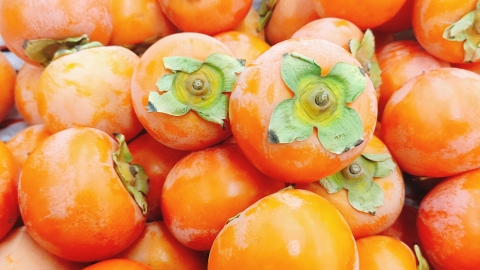Can kumquats and persimmons be eaten together?
Kumquats and persimmons can generally be consumed together. It is recommended to eat them in moderation based on individual conditions.

Kumquats are rich in vitamin C and various minerals, offering effects of clearing heat, detoxifying, stimulating saliva, and quenching thirst. Persimmons contain abundant dietary fiber and multiple vitamins, and have functions of moistening the lungs, relieving cough, stimulating saliva, and quenching thirst. If both kumquats and persimmons are ripe and the individual has no special medical conditions, such as indigestion or gastritis, they can be consumed together in moderation. Ripe kumquats and persimmons offer better taste and their nutrients are more easily absorbed by the human body.
Persimmons are considered cold-natured foods and contain substances such as pectin and tannic acid. Overconsumption may irritate the gastrointestinal tract. Kumquats have a sweet and sour taste and can stimulate gastric juice secretion. Excessive consumption may also lead to excessive gastric acid secretion, thereby causing stomach discomfort. Therefore, it is recommended to consume them in moderation, and individuals with a cold deficiency of the spleen and stomach should pay particular attention to controlling their intake because persimmons are cold in nature, and excessive consumption may negatively affect the function of the spleen and stomach.
In daily diet, it is recommended to maintain a balanced dietary structure and diversify food intake, which helps maintain health.




